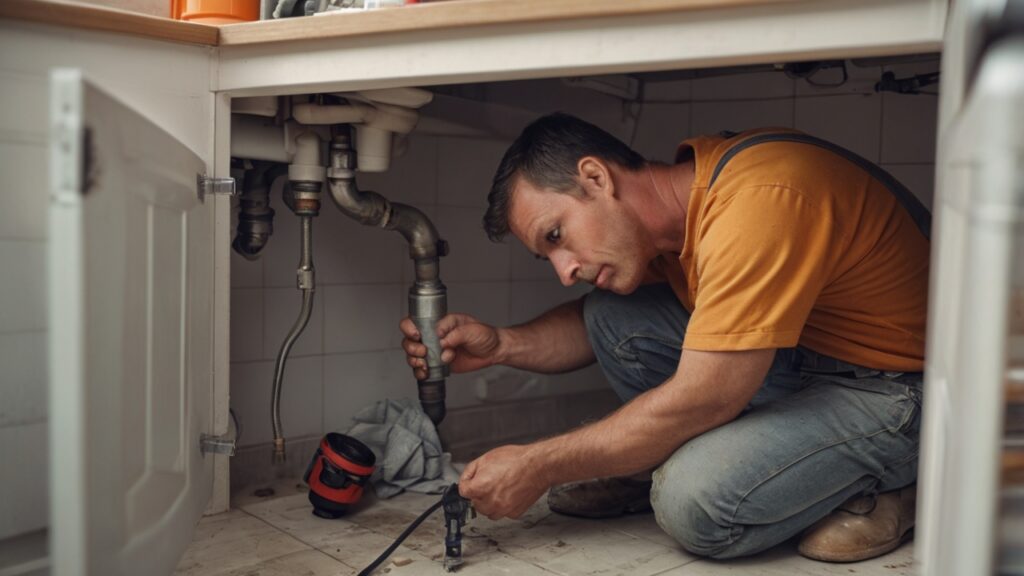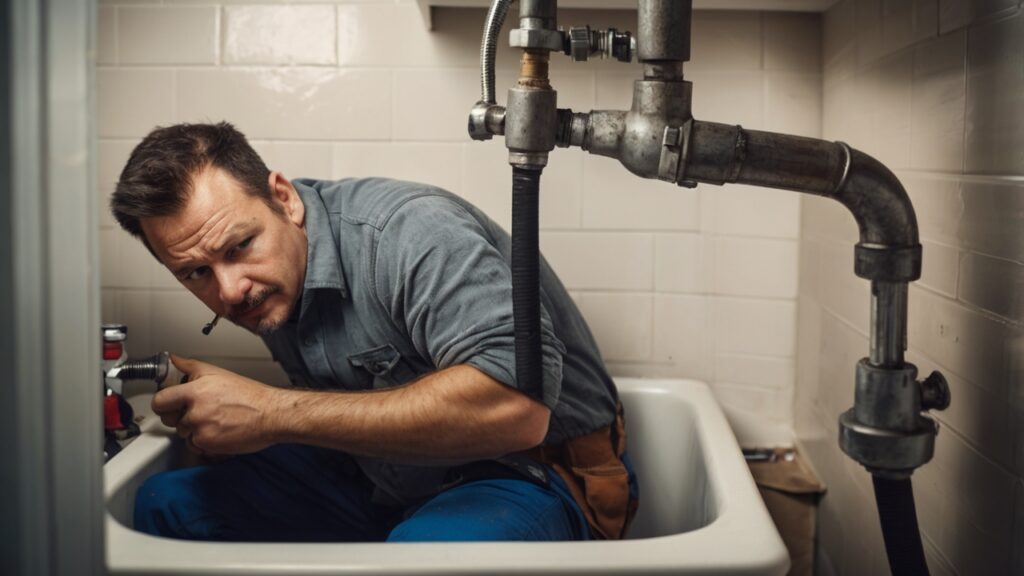If you’re stuck wondering how to find a trusted plumbing company, this guide is for you. Below is a practical, no-fluff checklist to make sure you hire only the most professional, trusted, and reliable plumber for your needs.
The Real Struggle of Hiring a Plumber
It’s not fun. A water pipe bursts at 10 PM, your bathroom floor is turning into a mini swimming pool, and you’re panicking. Calls are being made, numbers are googled in a rush, and suddenly you realize you don’t even know what is a plumbing license and why is it important.
The truth is, many homeowners learn the hard way. I once had a friend who hired a cheap plumber off social media—looked professional, even carried a toolbox—but three days later, the same leak came back. In fact, it got worse. That’s why knowing how to find a reliable plumber before an emergency hits is not just smart, it’s essential.
A trusted plumbing company doesn’t only fix leaks. They save you money, time, and headaches. This article will be your checklist for making sure you never fall into the “bad plumber trap.” And yes, I’ll sprinkle in a few real examples, tools of the trade, and mistakes I’ve seen along the way.
Step 1: Check for Licenses and Insurance
Before anything else, a professional and reliable plumber should have a license. But let’s pause: what is a plumbing license and why is it important?
Simply put, a license proves the plumber has undergone training, passed state exams, and understands local building codes. Without it, you’re basically hiring someone who may or may not know the difference between a compression fitting and a flare fitting.
I once asked a local “plumber” for his license number, and he got offended. That was a red flag. Don’t feel bad for asking—it’s your right. Insurance is equally important. If something breaks while repairs are ongoing, you don’t want to be the one paying for damages.
As expert plumber Michael Reynolds from Raleigh says:
“Hiring a licensed plumber is not just about the law, it’s about peace of mind. Unlicensed work is like gambling—you might win, but usually, you lose.”
Step 2: Ask the Right Questions
Before hiring, have a mini-interview. It doesn’t need to feel like an interrogation. Just ask simple but crucial questions. These are not only questions to ask a plumber before hiring, but also a test of how open and professional they are.
Some questions to start with:
- How long have you been in business?
- Do you provide written estimates?
- What types of parts do you use—OEM (original) or generic?
- What’s your warranty policy for repairs?
If they dodge answers, or worse, get annoyed, walk away. The best plumbers love explaining their process. For example, one plumber proudly showed me his Milwaukee PEX crimping tool and explained why he prefers it over cheaper alternatives. That kind of transparency builds trust.
Step 3: Get a Written Estimate
Verbal quotes are nice but unreliable. A trusted plumbing company will always give you a written estimate. Why? Because it protects both sides.
Imagine calling for a clogged sink. They say, “It’ll be around $80.” But after they leave, you’re billed $250 because “it took longer than expected.” Without paperwork, you’re stuck.
Written estimates should break down:
- Labor cost
- Spare parts used (PVC, copper, brass fittings, gaskets, washers, etc.)
- Service fee or call-out fee
- Any potential extra costs if complications arise
This isn’t about mistrust—it’s about clarity. Transparent plumbing pricing is what separates experts from opportunists.
Step 4: Study Customer Reviews
We live in a review-driven world. Still, many people don’t know how to check plumber reviews effectively.
Don’t just skim the star rating. Look at the details. Real reviews mention specifics: “They replaced my water heater and even explained how to maintain it.” Fake ones often sound generic: “Great service. Recommended.”
I once saw a company with 50 five-star reviews… all written in the same week. Suspicious, right? Trusted plumbers build reputation over time, not overnight.
Step 5: Look for Transparent Pricing
I cannot stress this enough. Plumbing costs can escalate quickly. You need clarity upfront.
For example, if you’re fixing a small leaks – big problems situation (like a pinhole in copper pipes), ask them to explain the repair process. Will they cut and replace the section? Use epoxy putty? Or go for full repiping?
Each option has different costs. A reliable plumber won’t shy away from explaining these choices and helping you pick what fits your budget and long-term needs.
A Quick Case Study: The $30 Washer That Saved $600
A neighbor once called me in a panic. Her toilet wouldn’t stop running. She was quoted $700 for a “toilet rebuild.” Something felt off, so I suggested a second opinion.
Turns out, it was just a faulty flapper valve—basically a $30 part. The new plumber fixed it in 20 minutes.
This story shows why how to find a reliable plumber matters. It’s not just about repairs—it’s about honesty.
The Bigger Picture: Beyond Just Hiring a Plumber
While we’re talking about plumbers, remember that plumbing issues often connect with broader home problems. Moisture leads to mold, clogged drains sometimes signal tree root invasions, and low water pressure might hint at municipal supply issues.
That’s why at Pro Service Tips, we’re also covering topics like:
- DIY Plumbing vs. Hiring a Pro
- Your Step-by-Step Guide to Responding to a Burst Pipe
- Specialized Plumbing Services Every Homeowner Should Know
- How to Find a Reliable Plumber
Future blog ideas will expand into things like sewer line inspections, smart home water monitoring, and eco-friendly plumbing solutions. Because leaks and clogs are just the tip of the iceberg.
FAQs About Hiring a Plumber
Q1: How do I avoid being overcharged by a plumber?
Get multiple written estimates, check for transparent pricing, and ask detailed questions about labor and parts.
Q2: What should I do if a plumber doesn’t have insurance?
Walk away. Hiring uninsured workers puts you at financial risk if accidents happen.
Q3: How important are reviews when choosing a plumber?
Very. Reviews reveal real experiences, professionalism, and whether they stand by their work. But always watch for fake or spammy reviews.
Final Thoughts
By now, you should feel more confident about how to find a reliable plumber. It’s about doing homework, asking the right questions, and spotting red flags. From verifying licenses to checking transparent pricing, every step in this checklist makes a difference.
If you’ve ever been burned by a shady plumber, you know the frustration. But the good news is—trusted, professional, and expert plumbers are out there. You just need to know how to filter them out.
If you found this article helpful, please share it on your social media using the buttons below—it might save someone else from a very wet and costly mistake.


